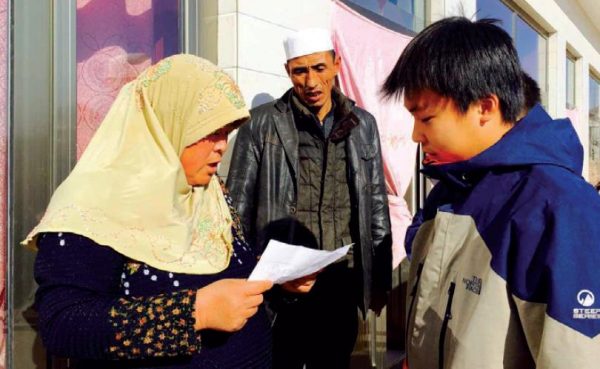
In the winter of 2014, eighth-grader Ziyi Wang came across an article of micro lending in Bangladesh. He said to himself: Why not bring the idea to poor rural Chinese villages?
Now a 16-year-old student at The King’s Academy in Sunnyvale, California, Wang said the article and a few trips to Bangladesh and Nepal sparked his interest in innovative community philanthropy.
“We were encouraged to donate money to needy people, but I was thinking if there’s some way to help them create economic value in a sustainable way,” Wang said.
His involvement in philanthropic work earned him the President’s Volunteer Service Award on Nov 4 in the area of economic opportunity three years in a row from 2015.
In the winter of 2014, Wang and four other students set up a group called “Nano Seed” to raise money for their philanthropic project.
After research, they found a micro-lending project in Dagouyan village, Tongxin county, in China’s northwest Ningxia Hui autonomous region.
“I can’t forget the moment when we set our eyes on the village and the children there,” recalled Wang. “It’s already 2014, but people still used kerosene stoves from decades ago. I never imagined the existence of such a poor village.”
The group of students stayed for two weeks, studying the villagers’ livelihoods and interviewing residents about their needs. They first met with rejection, but later they won the support from a women’s organization and were accepted by the villagers, Wang said.
“We found most of the men went to work in cities, and the women left home had few opportunities to make extra money, except working in farmland,” Wang said. “The average household income per month was less than 1,000 yuan ($151).”
The soil there is rich in selenium, which makes the village a perfect place to plant some Chinese herbs and produce beef and lamb, he said.
To help the women start up profitable businesses, Nano Seed has donated almost $10,000 to the micro-lending project in the past three years. Wang has visited the village four times during summer or winter vacations to investigate new economic opportunities.
Last year, they helped the villagers launch online stores on Taobao, a major online shopping website in China, and WeChat, a popular social networking app, selling native products.


